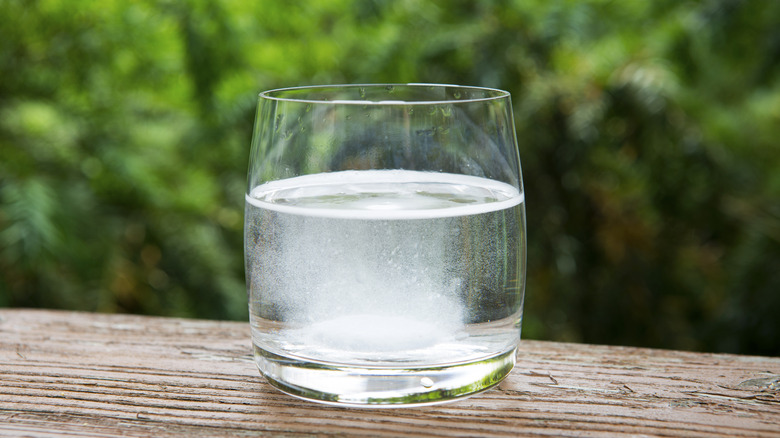What Happens When A Substance Dissolves In Water?
Chemists have a saying: "Like dissolves like." This aphorism refers to a specific characteristic of the molecules of a solvent and the solutes that will dissolve in it. That characteristic is polarity. A polar molecule is one that has electric charges opposing each other; think poles but with positive and negative instead of north and south. If you combine two substances with polar molecules, those polar molecules can be attracted to each other rather than the rest of the ones in the compounds they form, depending on the magnitude of the polarities. The water molecule (H20) is strongly polar, which is why water so so good at dissolving substances. This ability has given water the reputation for being a universal solvent.
TL;DR (Too Long; Didn't Read)
Polar water molecules collect around the molecules of other polar compounds, and the force of attraction breaks the compounds apart. Water molecules surround each molecule as it breaks away, and the molecule drifts into solution.
Like Little Magnets
Like Little Magnets
Each water molecule is a combination of two hydrogen atoms and an atom of oxygen. If the hydrogen atoms arranged themselves symmetrically on either side of the oxygen atom, the molecule would be electrically neutral. That isn't what happens, though. The two hydrogens arrange themselves at the 10 o'clock and 2 o'clock positions, somewhat like Mickey Mouse's ears. This gives the water molecule a net positive charge on the hydrogen side and an negative charge on the other side. Each molecule is like a microscopic magnet attracted to the opposite pole of the adjacent molecule.
How Substances Dissolve
How Substances Dissolve
Two types of substances will dissolve in water: ionic compounds, such as sodium chloride (NaCl, or table salt) and compounds composed of larger molecules that have a net charge due to the arrangement of their atoms. Ammonia (NH3) is an example of the second type. The three hydrogens are arranged asymmetrically on the nitrogen, creating a net positive charge on one side and a negative one on the other.
When you introduce a polar solute into water, the water molecules behave like tiny magnets attracted to metal. They collect around the charged molecules of the solute until the force of attraction they create becomes greater than that of the bond holding the solute together. As each solute molecule gradually breaks away, water molecules surround it, and it drifts into solution. If the solute is a solid, this process happens gradually. The surface molecules are the first to go, exposing the ones underneath to water molecules that have not yet bonded.
If enough molecules drift into solution, the solution can reach saturation. A given container holds a finite number of water molecules. After all of them have become electrostatically "stuck" to solute atoms or molecules, no more of the solute will dissolve. At this point, the solution is saturated.
A Physical or Chemical Process?
A Physical or Chemical Process?
A physical change, such as water freezing or ice melting, does not change the chemical properties of the compound undergoing the change, whereas a chemical process does. An example of a chemical change is the process of combustion, whereby oxygen combines with carbon to produce carbon dioxide. CO2 has different chemical properties than the oxygen and carbon that combine to form it.
It isn't clear whether dissolving a substance in water is a physical or chemical process. When you dissolve an ionic compound, such as salt, the resulting ionic solution becomes an electrolyte with different chemical properties than pure water. That would make it a chemical process. On the other hand, you can recover all the salt in its original form using the physical process of boiling off the water. When larger molecules such as sugar dissolve in water, the sugar molecules remain intact, and the solution does not become ionic. In such cases, dissolution is more clearly a physical process.
Cite This Article
MLA
Deziel, Chris. "What Happens When A Substance Dissolves In Water?" sciencing.com, https://www.sciencing.com/happens-substance-dissolves-water-8526943/. 26 April 2018.
APA
Deziel, Chris. (2018, April 26). What Happens When A Substance Dissolves In Water?. sciencing.com. Retrieved from https://www.sciencing.com/happens-substance-dissolves-water-8526943/
Chicago
Deziel, Chris. What Happens When A Substance Dissolves In Water? last modified March 24, 2022. https://www.sciencing.com/happens-substance-dissolves-water-8526943/
